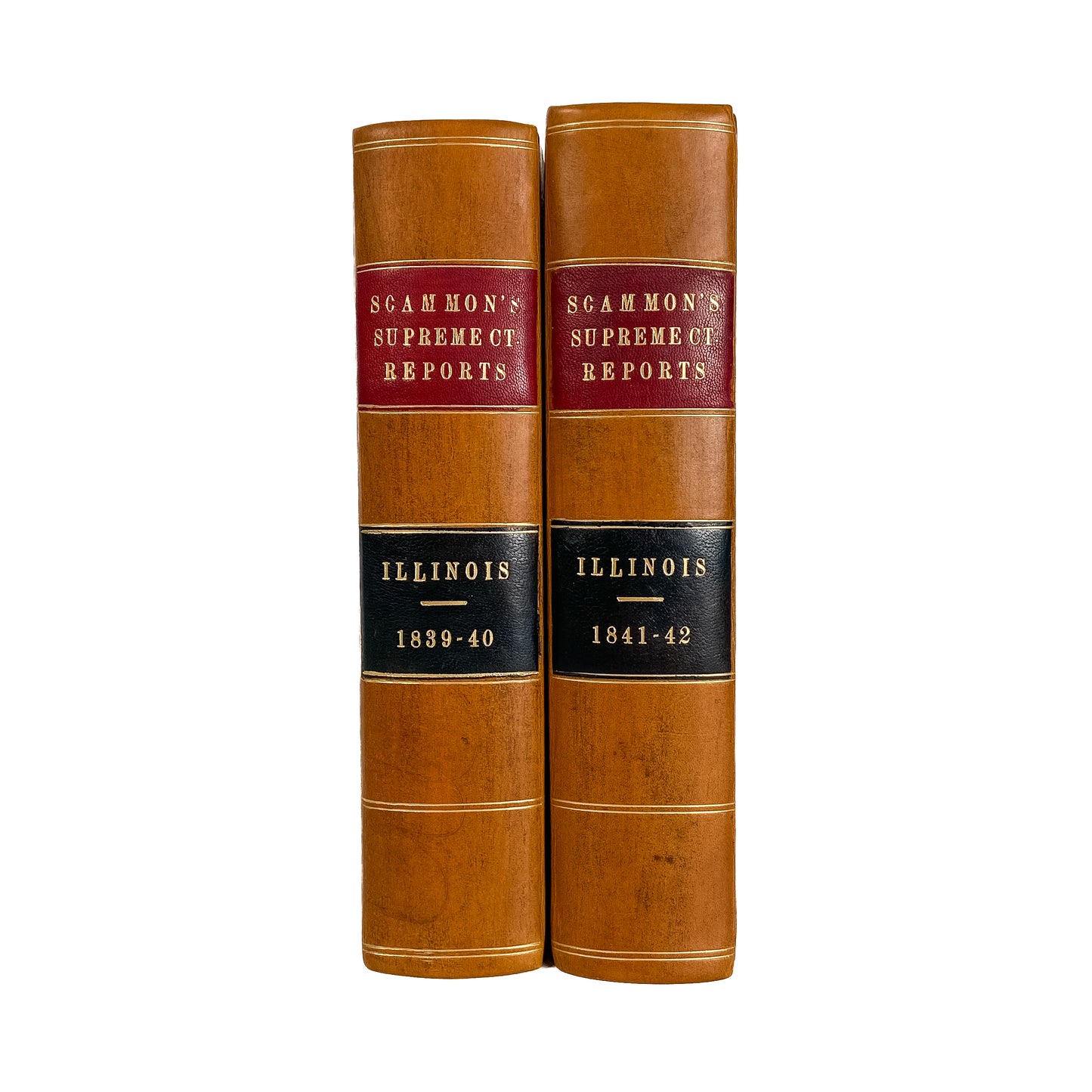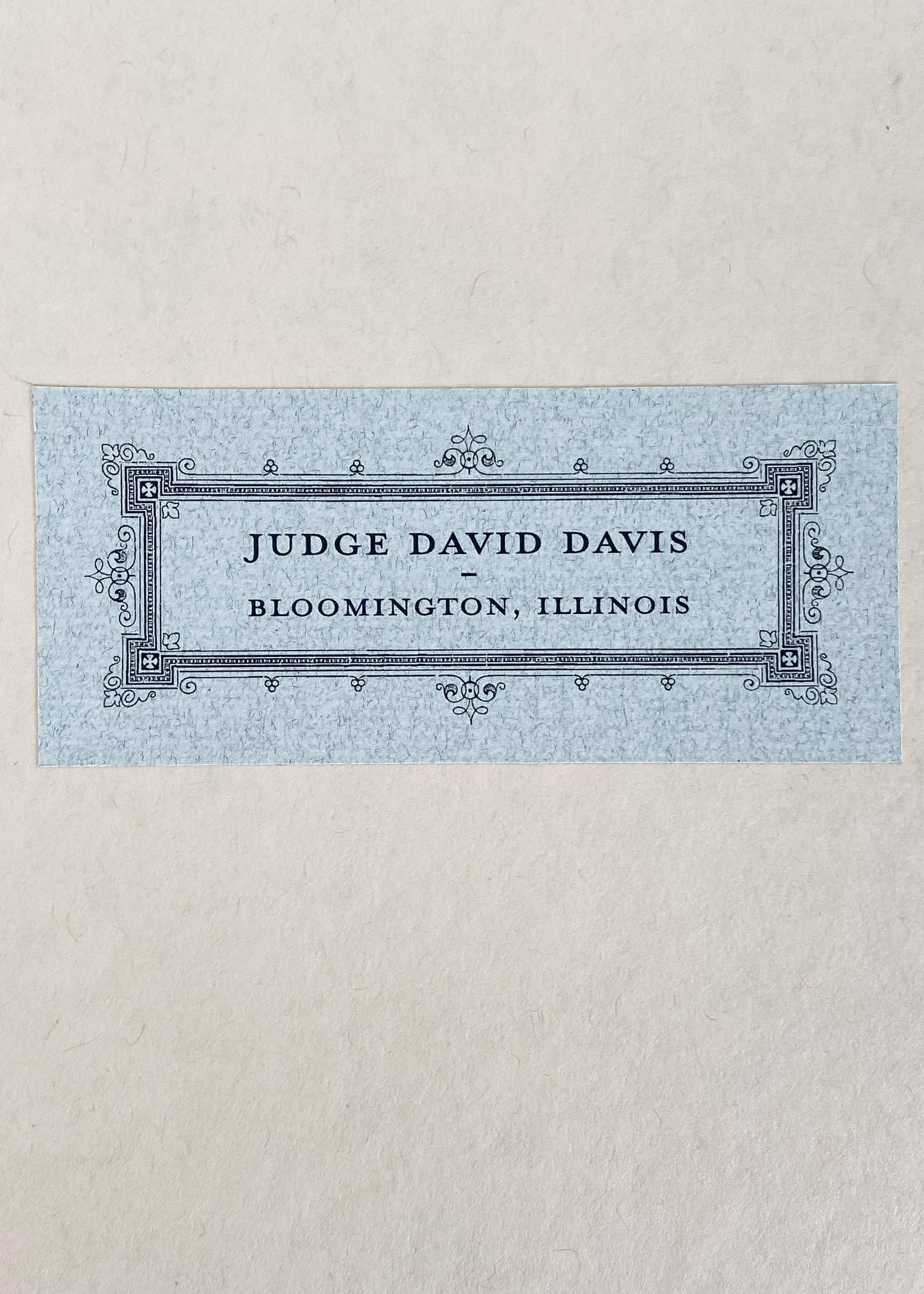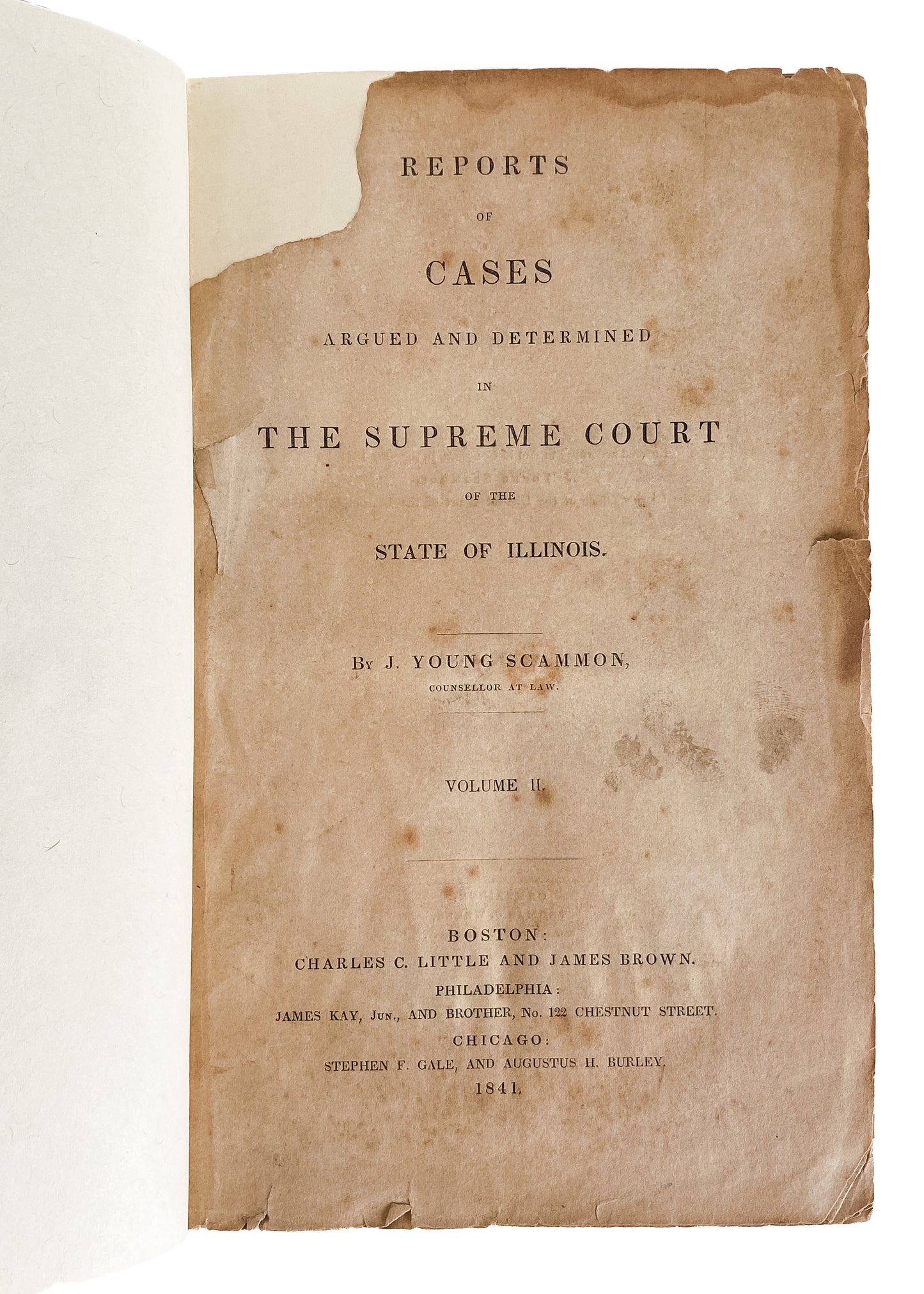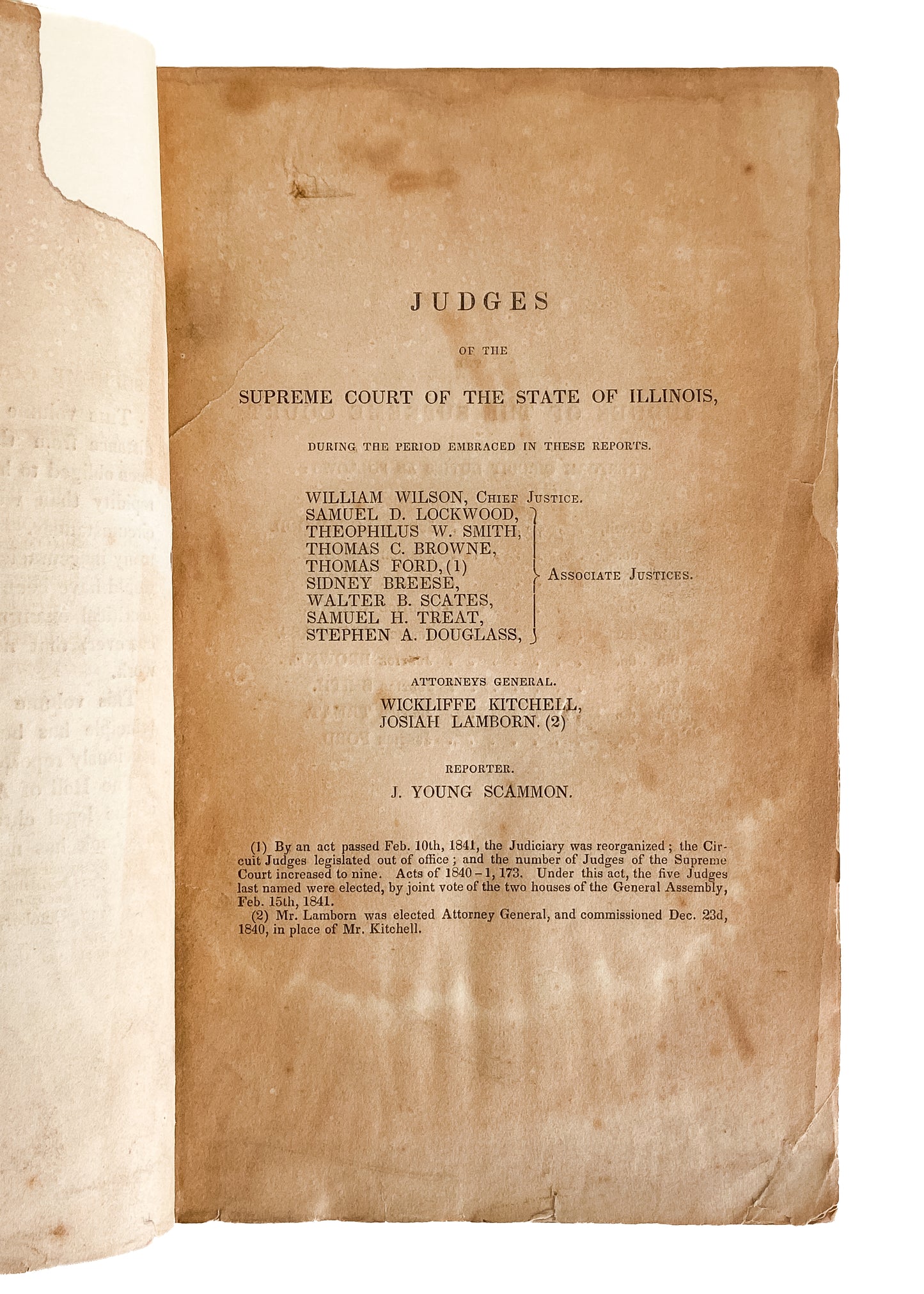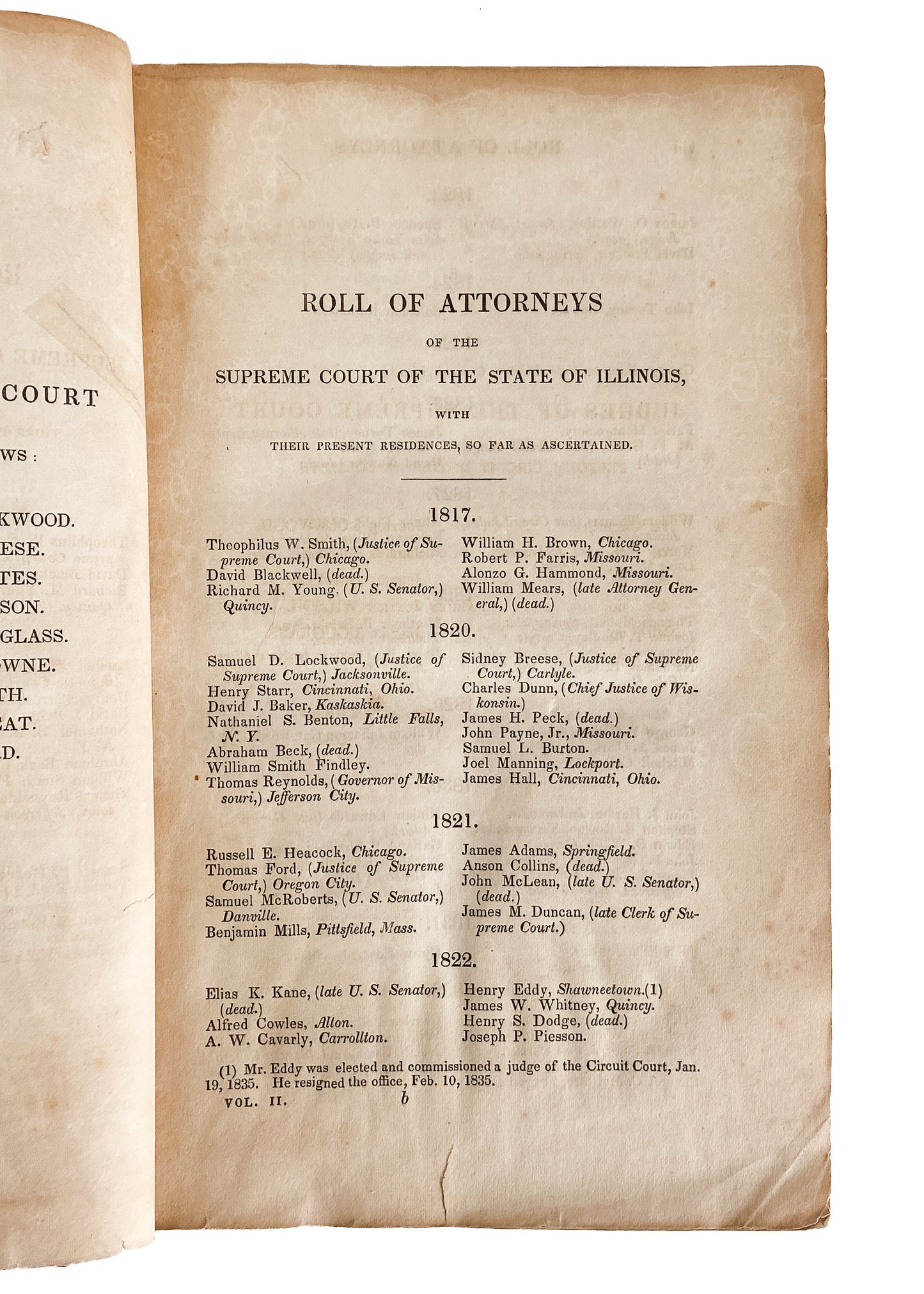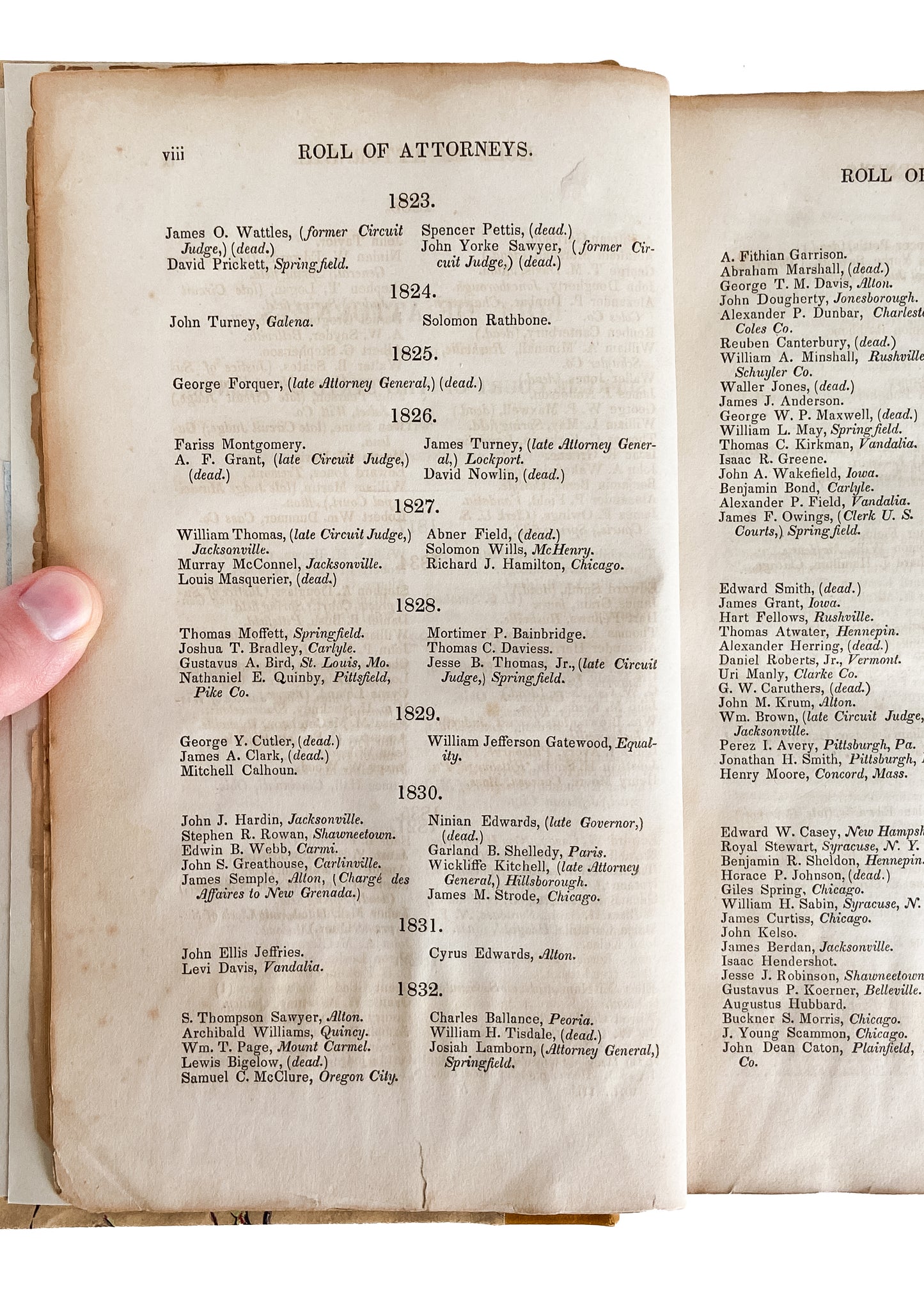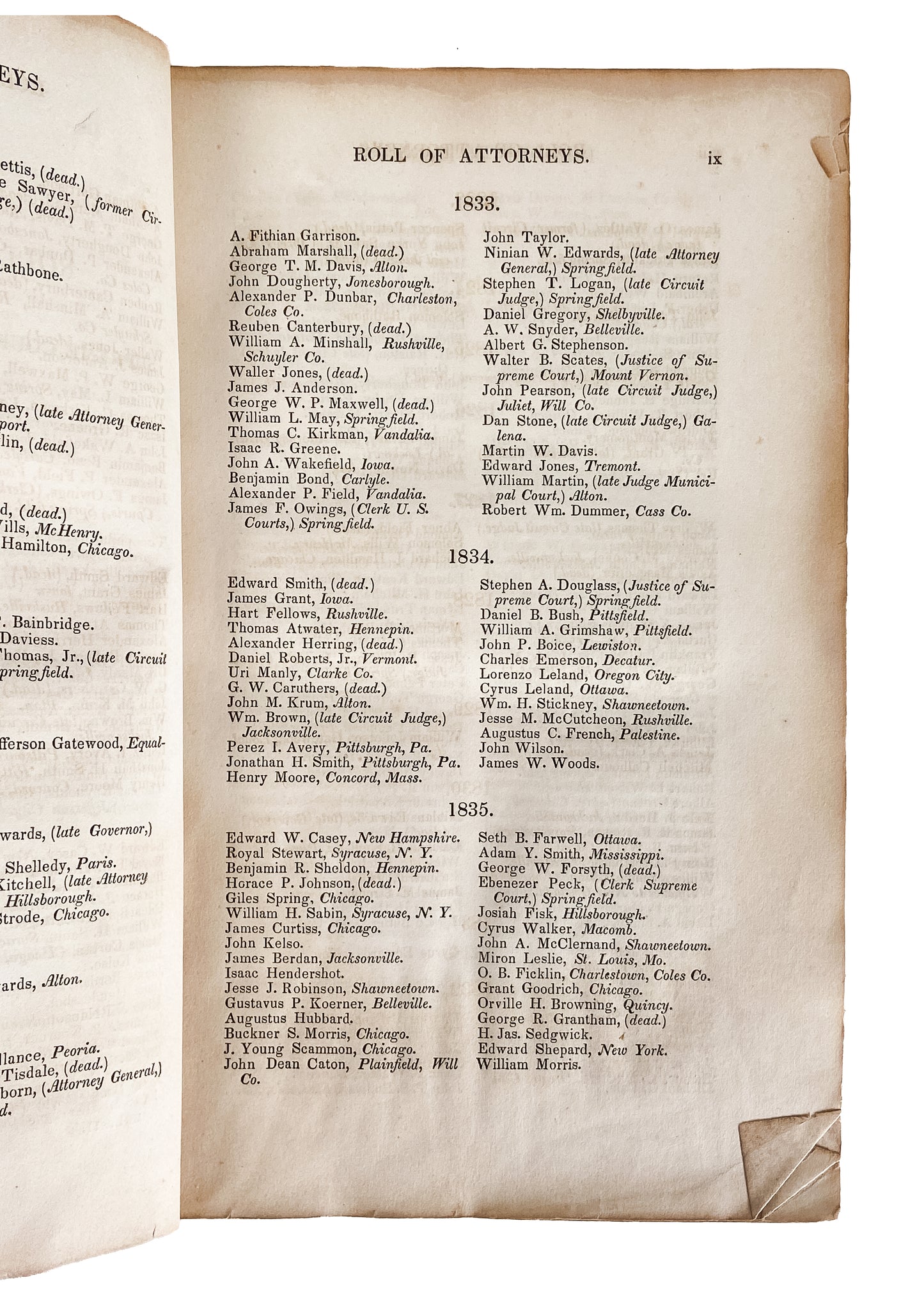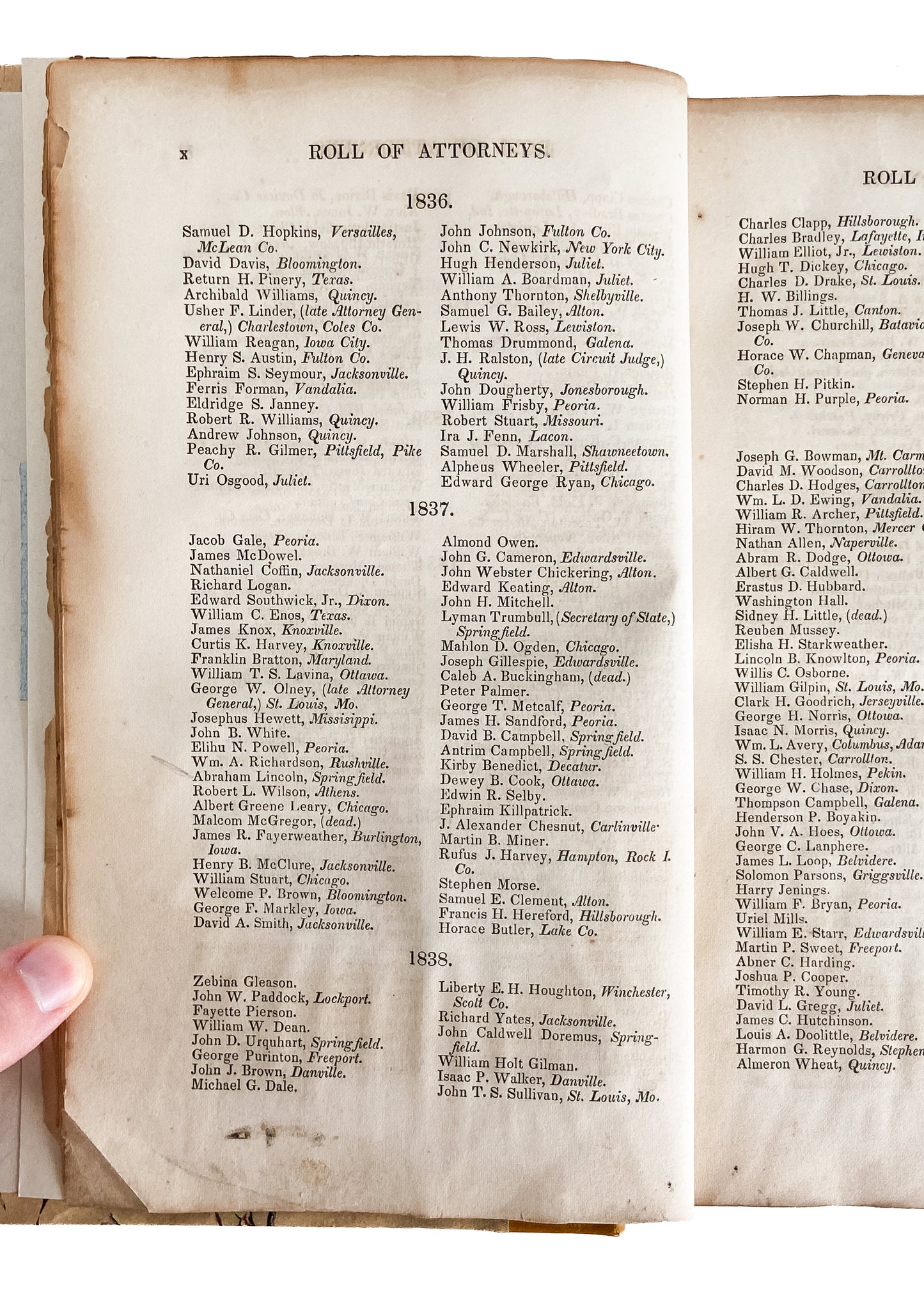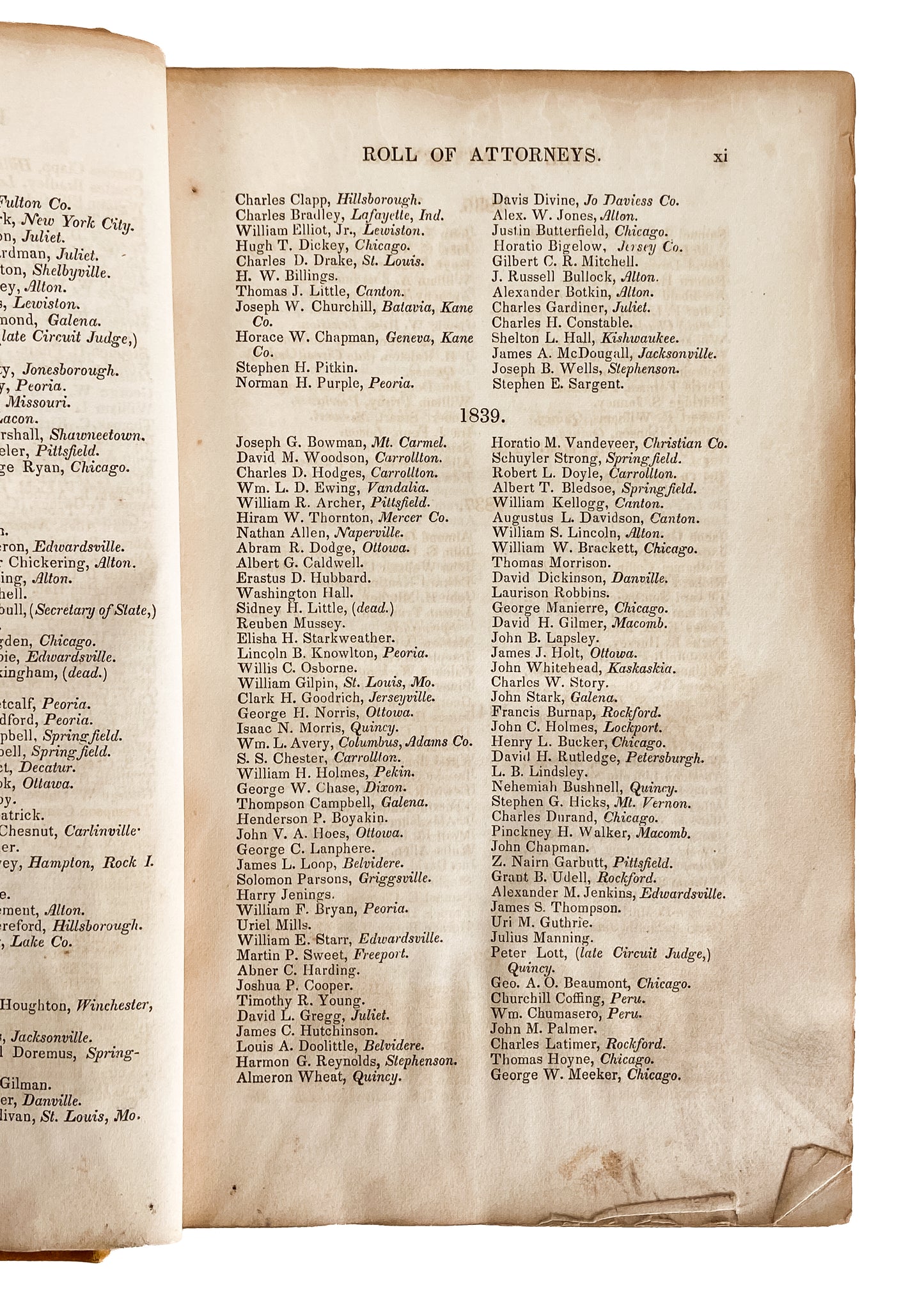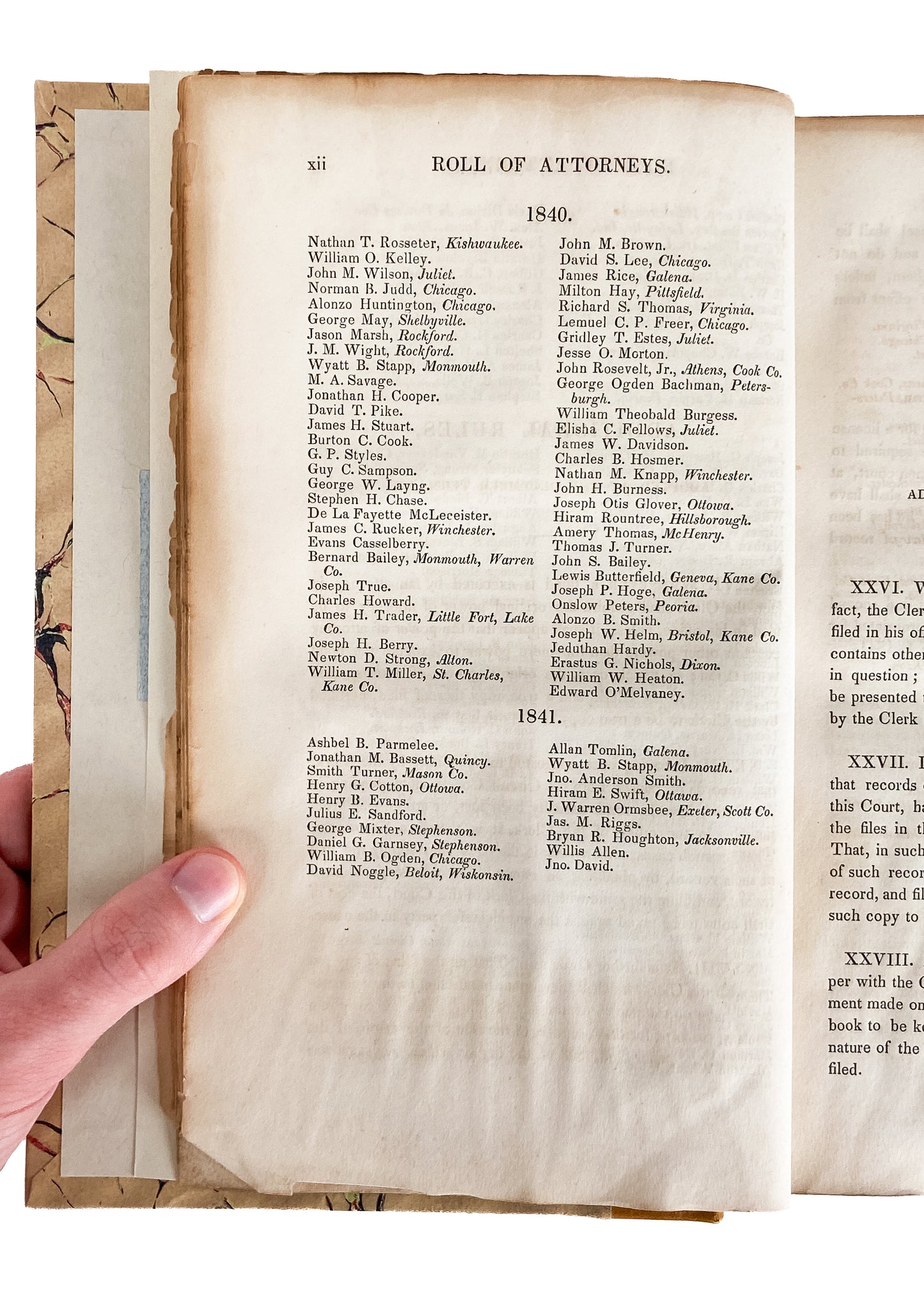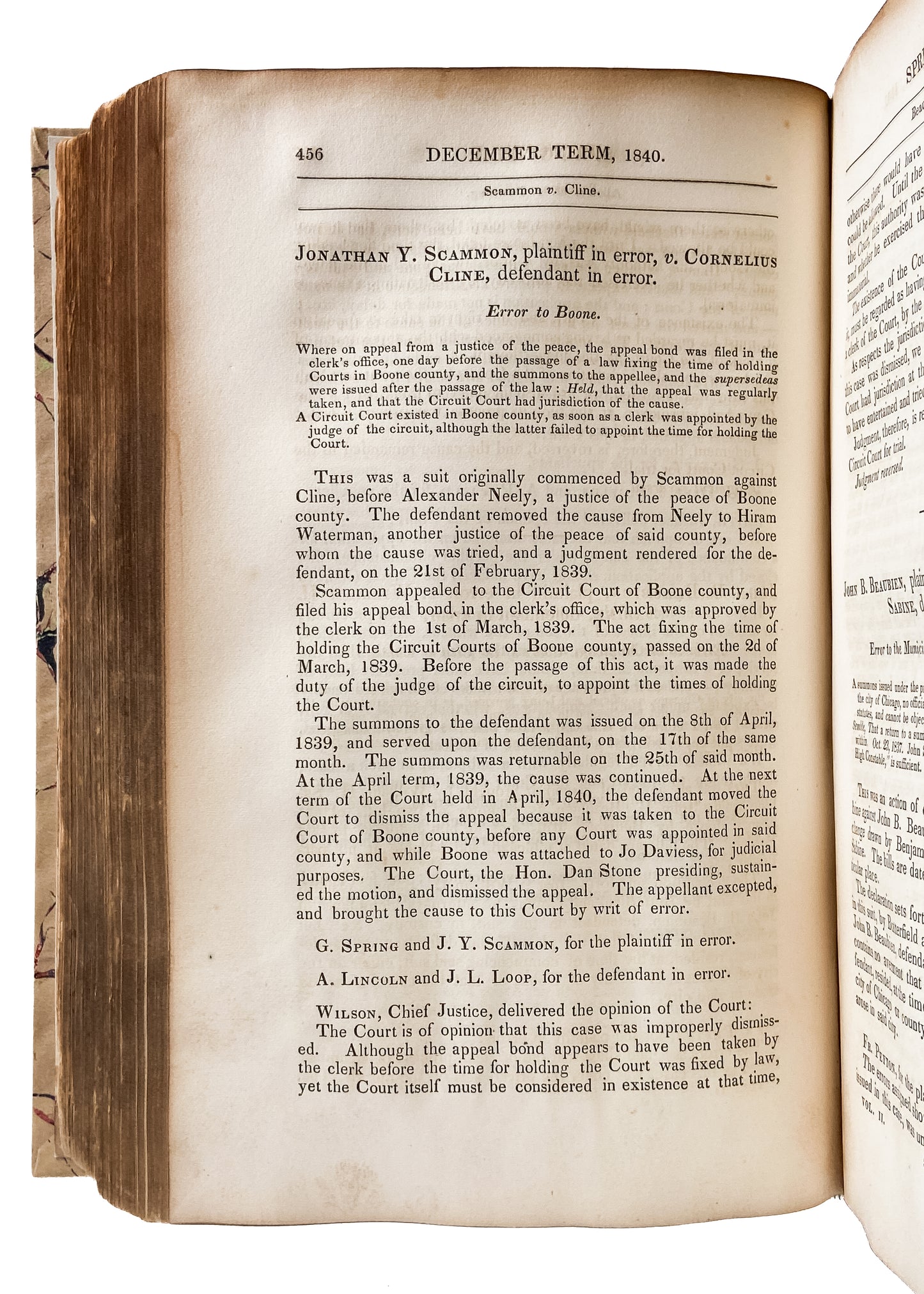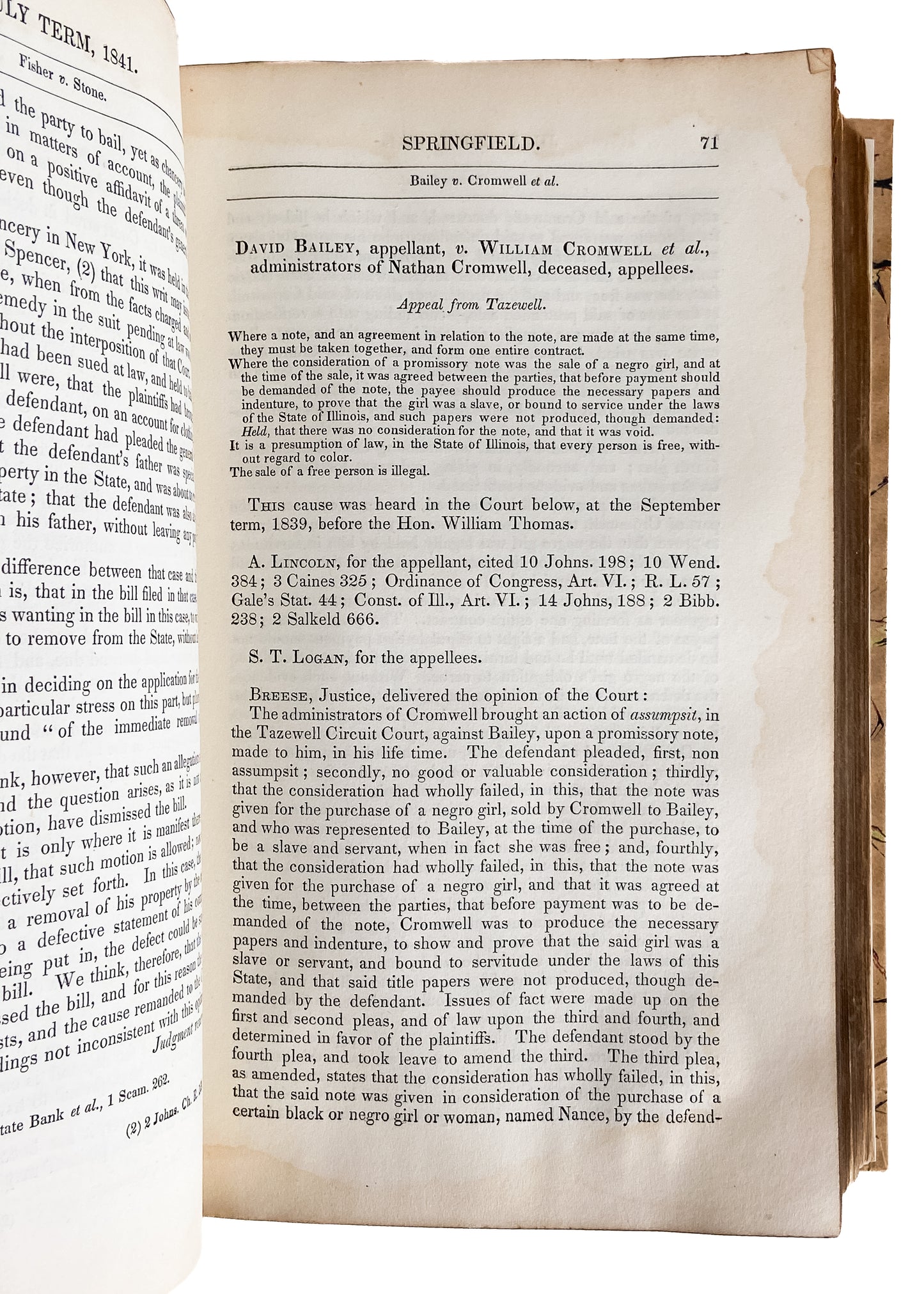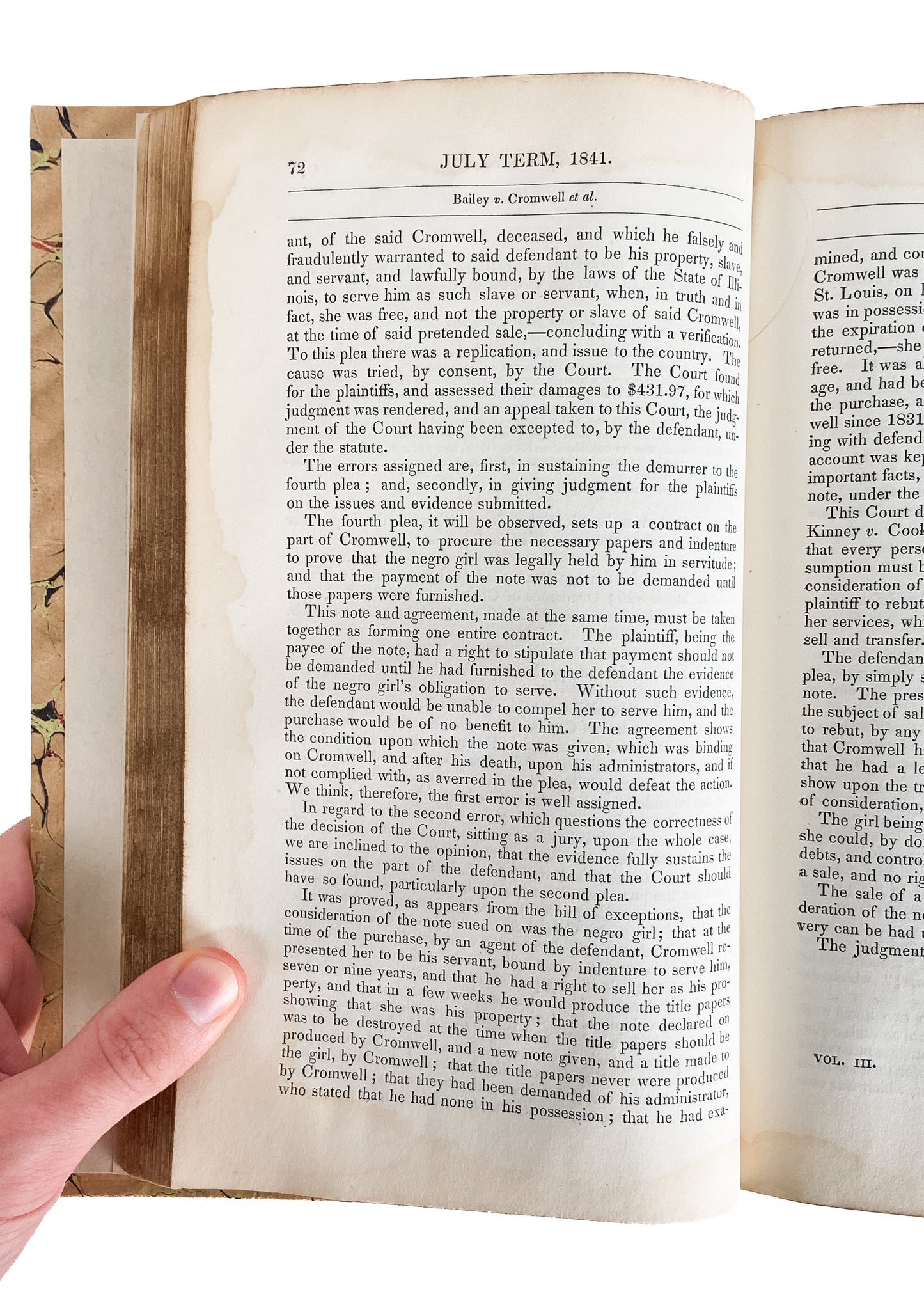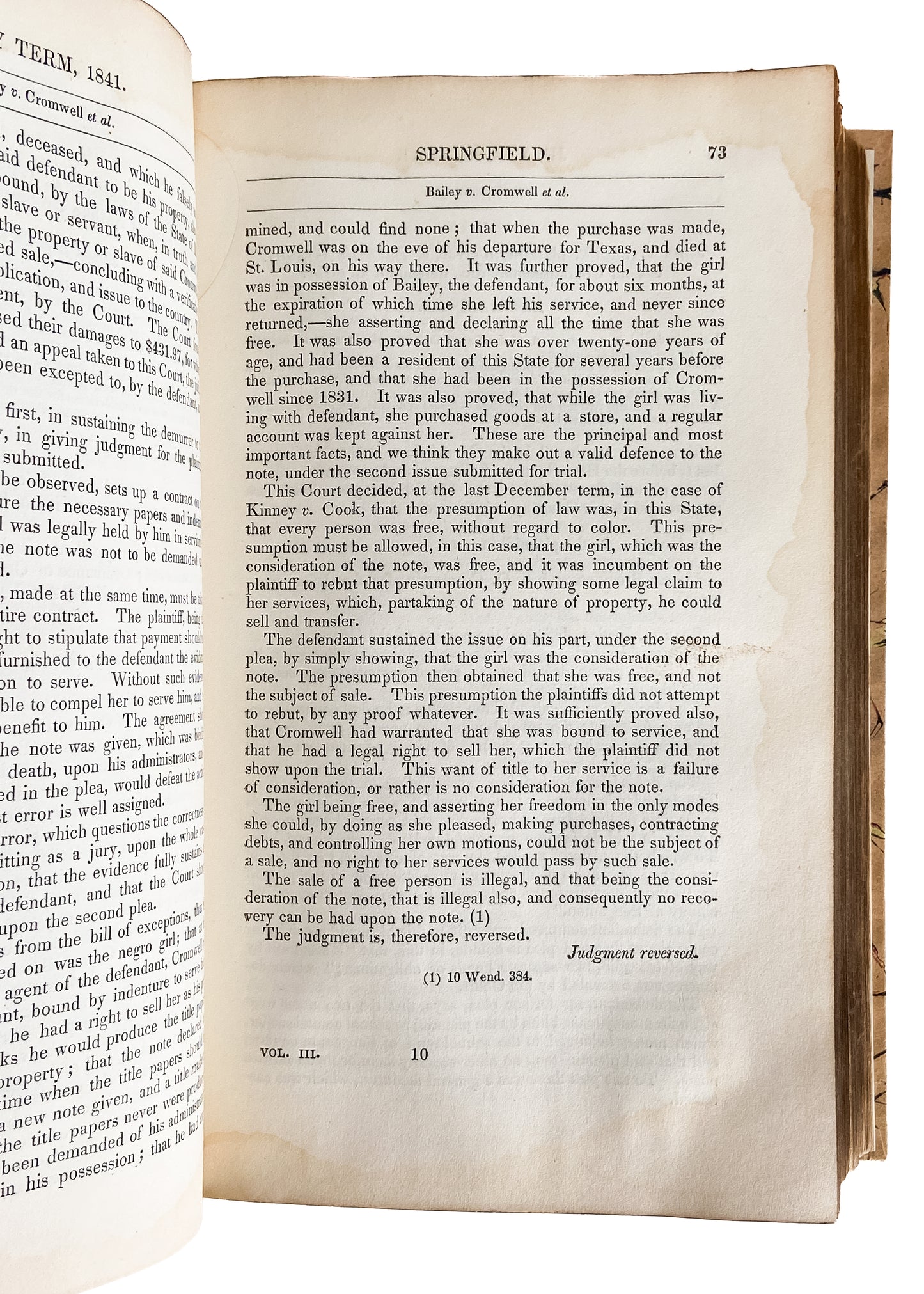Specs Fine Books
1839-1844 ABRAHAM LINCOLN. Argues the Slave Case that Changed America. Superb Provenance.
1839-1844 ABRAHAM LINCOLN. Argues the Slave Case that Changed America. Superb Provenance.
Couldn't load pickup availability
Very important pair of volumes including the first published cases ever printed of a young then-Illinois lawyer, Abraham Lincoln. The cases include the most important of his young career involving the freeing of a young slave named Nance. Adding to the interest, these particular copies belonged to Lincoln's long-time friend, Presidential campaign manager, and afterward his nominee to the Supreme Court of the United States, Judge David Davis.
The volumes themselves include:
[Abraham Lincoln]. Scammon, J. Young. Reports of Cases Argued and Determined in the Supreme Court of the State of Illinois. Vol II. Comprising 1839-1840. Chicago. Stephen F. Gale and Augustus H. Burley. 1841. 663pp.
[with]
[Abraham Lincoln]. Scammon, J. Young. Reports of Cases Argued and Determined in the Supreme Court of the State of Illinois. Vol. III. Comprising. 1841-1842. Chicago. Stephen F. Gale & Co. Galena. Augustus H. Burley. 1843. 682pp.
The first of the two volumes includes but one case [p.456]. This, however, was the very first case Abraham Lincoln argued before the State Supreme Court*. It was a rather trivial one, as might be expected for a young attorney, but a wonderful and very scarce piece of Lincolniana. He was just 29 years of age at the time.
Lincoln also appears in this volume under the official State Roll of Attorneys, it showing his licensure having taken effect in 1837. Other prominent persons are present as well, not the least of which being Lincoln's later political nemesis, Stephen A. Douglass.
The second volume, reflecting Lincoln's growing reputation, contains much more substantial material from the future President. He has gone from but one case before the Court, to a total of 15, including cases of a much higher profile.
They include: Cannon v. Kinney; Maus v. Worthing; Vailey v. Cromwell; Ballentine v. Beall; Elkin v. The People; Benedict v. Dellihunt; Abrams v. Camp; Hancock v. Hodgson; Grable v. Margrave; Averill v. Field; Wilson v. Alexander; Schlencker v. Risely; Mason v. Park; Greathouse v. Smith; Watkins v. White.
Of special importance is the presence of David Bailey v. William Cromwell, which many historians consider a watershed moment in Lincoln's own views on slavery as well as in for its role in setting a clear legal precedent regarding the treatment of slaves in the North. The case ultimately led to the Emancipation Proclamation and to the passage of the Thirteenth Amendment to the United States Constitution.
Bailey v. Cromwell has often been thought of as the case that brings credibility to the viewpoint of those who affirm Lincoln as having been always, and consistently over time, against slavery on both moral and political grounds. This is a bedrock moment in the life of the future President and of the status of slaves in America.
As Adams argues:
The "little-known case Lincoln argued before the Illinois Supreme Court in 1841, Bailey v. Cromwell, demonstrates his early moral stand against slavery in the State of Illinois . . . from his first slavery case that freed a girl named Nance, to his last constitutional act of signing the Thirteenth Amendment twenty-five years later, it becomes clear that Lincoln never wavered from his legal and moral conviction that, 'Neither slavery nor involuntary servitude (should) exist . . .;" Writing over a hundred years later, Federal Supreme Court Justice William O. Douglas reflected on the case that ' . . . thanks to Lincoln, the courts had been supplied with a mass of data supporting the principle of freedom. Certainly, this was one of the most far-reaching of the nearly 250 cases in which Lincoln was to appear before the State's highest tribunal.' Far-reaching indeed! Within a quarter of a century of this trial, the basic principle of Bailey v. Cromwell became the supreme law of the land and this time not one [slave only] but four million slaves became free." [Carl Adams. Lincoln's First Freed Slave. A Review of Bailey versus Cromwell, 1841 in Journal of the Illinois State Historical Society, Fall 2008].
No copies available on the market in any condition at any price. Not seen at auction since 1949.
Additionally, both copies were originally the property of Judge David Davis of Bloomington, Illinois [1815-1886]. Davis graduated from Yale Law School in 1835 and moved to Bloomington, Illinois. He began practicing law. By the 1840's, he was over the Eighth Circuit where Abraham Lincoln practiced. Politically aligned, and relationally allied, they worked together to promote each other politically. By 1860, Davis served as delegate to the Republican National Convention and took on the role of Campaign Manager for Abraham Lincoln's successful bid for the Presidency.
Shortly after the election, Davis received a recess appointment from President Lincoln as an associate justice of the Supreme Court of the United States, to succeed John Archibald Campbell, a Southerner, who had resigned on April 30, 1861, after the outbreak of the Civil War. Formally nominated on December 1, 1862, Davis was confirmed by the United States Senate on December 8, 1862, and took the judicial oath of office on December 10, 1862.
Fascinatingly, Davis has been in the news again recently for his authorship of one of the most important decisions in Supreme Court history, Ex parte Milligan [1866]. In that decision, the court set aside the death sentence imposed during the Civil War by a military commission upon a civilian, Lambdin P. Milligan. Milligan had been found guilty of inciting insurrection. The Supreme Court held that since the civil courts were operative, the trial of a civilian by a military tribunal was unconstitutional. The opinion denounced arbitrary military power, effectively becoming one of the bulwarks of held notions of American civil liberty. This case has been ready to hand in modern law regarding the possibility of a President's desire to retain power without due electoral process. [See the Cato Institute: Trump Cannot Stay In Power By Declaring Martial Law | Cato at Liberty Blog]
The present books were salvaged after a 1902 fire destroyed much of the attic and tower of the Judge David Davis historic home in Bloomington, Illinois. During the extinguishment of the fire, the original bindings were rendered irredeemable. They have since been very handsomely rebound in period appropriate quarter calf legal style bindings and have a later bookplate of Judge David Davis on each pastedown. We acquired these from the descendants of the Bloomington family who originally acquired them post-inferno.
Some edge water marks to text as shown, a pair of earlier rather naive paper repairs the first of the volumes, and another in the second. Each volume inexplicably lacks one leaf of text with no Lincolniana impacted.
.
*For a charming historical account of the case, see, Carpenter, Richard V. Lincoln's First Supreme Court Case in Journal of the Illinois State Historical Society, October 1911. Also see Frederick Trevor Hill, Lincoln as Lawyer [1906].
Share
